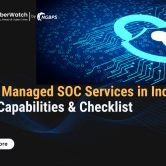A data breach refers to an unauthorized access or acquisition of sensitive and confidential information held by an organization or individual. In a data breach, an individual, group, or entity gains access to data without proper authorization, often with the intent to exploit or misuse it for malicious purposes. This unauthorized access can occur through various means, including hacking, exploiting vulnerabilities in security systems, insider threats, or the loss or theft of physical devices containing sensitive information.
Data breaches can involve a wide range of information, such as personal and financial data, login credentials, intellectual property, trade secrets, and more. The motives behind data breaches can vary, ranging from financial gain and identity theft to corporate espionage and activism. Cybercriminals may use the stolen data for fraudulent activities, sell it on the dark web, or leverage it to compromise the privacy and security of individuals and organizations.
A data breach can have severe and far-reaching consequences for a business. It can result in financial losses due to regulatory fines, legal liabilities, and costs associated with addressing the breach. Additionally, the loss of customer trust can lead to a decline in sales and reputation damage. Intellectual property theft can harm a company’s competitive advantage.
Moreover, the effort required to rectify the breach, improve security, and manage the aftermath can divert resources and time away from core business activities. Overall, a data breach can disrupt operations, erode trust, and incur significant financial and reputational damage to a business.
No one is safe: the reality of data breaches
In today’s digital age, the reality of data breaches is that no one is safe. According to the IBM Cost of a Data Breach Report 2021, the average time to identify and contain a data breach globally was around 287 days. The healthcare industry has historically been a prime target for data breaches due to the value of health records on the black market.
However, other sectors, including finance, retail, and technology, also experience a significant number of breaches. According to the same IBM report, the global average cost of a data breach was $4.24 million. Costs include expenses related to incident response, legal services, regulatory fines, and reputational damage.
Hackers constantly evolve their tactics, making it challenging to stay ahead of the threat. Even with robust cybersecurity measures, vulnerabilities may still exist.
The Impact of data breaches on SMBs and Startups
Cybercriminals see SMBs as attractive targets due to perceived weaker security measures. This deficiency is largely attributed to the CAPEX involved in implementing cybersecurity solutions and a shortage of cybersecurity expertise to fully harness their capabilities. Non-compliance with data protection regulations can also result in additional financial penalties. SMBs may find it challenging to navigate and meet the regulatory requirements, leading to potential fines. The cost of non-compliance can significantly impact their bottom line.
Data breaches can have a devastating impact on small and medium-sized businesses (SMBs) and startups, affecting their financial health, reputation, and overall ability to operate.
It is no surprise that there are a ton of industry reports highlighting the impact of data breaches on SMBs and startups:
- Verizon Data Breach Investigations Report 2021, the average cost of a data breach for small businesses is around $3.86 million
- The 2020 Cyber Readiness Report by Hiscox reveals that 60% of small businesses that experience a cyberattack go out of business within six months.
- The 2021 Verizon Data Breach Investigations Report notes that 43% of breaches involved small business victims
- The 2020 State of Cybersecurity in Small and Medium-Sized Businesses report by Cybint Solutions highlights that 66% of SMBs took more than three months to discover a data breach.
- The National Cyber Security Alliance’s “Small Business Cybersecurity Pulse Survey” reveals that only 22% of small businesses feel confident in their ability to defend against a cyberattack.
- The “2021 Ransomware Resilience Report” by Coveware indicates that the average ransom payment for small businesses increased to $178,254 in the first quarter of 2021.
These statistics underscore the critical need for SMBs and startups to prioritize cybersecurity measures, invest in employee training, and potentially evaluate Managed Security Services viz. Managed SOC Services (Managed Security Operations Center Services) to avoid CAPEX and subscribe to top notch security solutions and expert resources at a fraction of the cost. As cyber threats continue to evolve, building resilience and preparedness is essential for the long-term success and survival of small businesses in the digital landscape.
How prepared are they?
The cybersecurity preparedness of small and medium-sized businesses (SMBs) remains a mixed landscape, reflecting varying levels of awareness and investment. The Hiscox Cyber Readiness Report 2020, found that 47% of surveyed small businesses allocated less than $5,000 to their cybersecurity budget, limiting their ability invest in robust cybersecurity measures.
The same report also sighted that 44% of small businesses surveyed did not regularly update their software and systems leading to vulnerabilities being exploited by cybercriminals. The Cybint Solutions “2020 State of Cybersecurity in Small and Medium-Sized Businesses” report revealed that 63% of SMBs do not have an incident response plan in place. A lack of preparedness in responding to cybersecurity incidents can increase the impact of a breach.
This widening skills gap is a global concern, with over 68% of organizations acknowledging the threat they face due to the shortage of cybersecurity expertise.
Steps to take if you have experienced a data breach.
- Isolate and Contain the Breach: Immediately isolate the affected systems to prevent further unauthorized access. Contain the breach to limit the potential damage.
- Notify Relevant Parties: If customer or employee data is compromised, adhere to legal requirements and promptly notify the affected individuals. Transparent communication helps maintain trust.
- Engage Law Enforcement: Report the breach to law enforcement agencies. They can provide guidance and investigate the incident, especially if it involves criminal activity.
- Invoke Incident Response Plan: Activate your incident response plan to ensure a coordinated and efficient response. This plan should include clear roles and responsibilities for team members.
- Conduct a Thorough Investigation: Investigate the breach to understand its scope, how it occurred, and what data was compromised. This information is crucial for improving security measures and preventing future incidents.
- Work with Cybersecurity Experts: Engage with cybersecurity experts or hire a Managed Cyber Security Service Provider to assist in identifying and addressing vulnerabilities, conducting forensic analysis, and implementing remediation measures.
AiCyberWatch Keeping you ahead of Cyber Crime
AiCyberWatch offers robust protection against data breaches and an array of cyberattacks, creating a robust defense for your organization’s digital assets and sensitive information. We employ advanced threat detection and prevention measures, coupled with expert security practices, to mitigate risks and fortify your network, systems, and data.
With a focus on proactive monitoring, rapid incident response, and continuous security enhancements, we provide comprehensive, tailored solutions that adapt to evolving threats. Partner with us to bolster your cybersecurity posture, safeguard your valuable data, and ensure the resilience of your operations in an increasingly digital and interconnected world.




